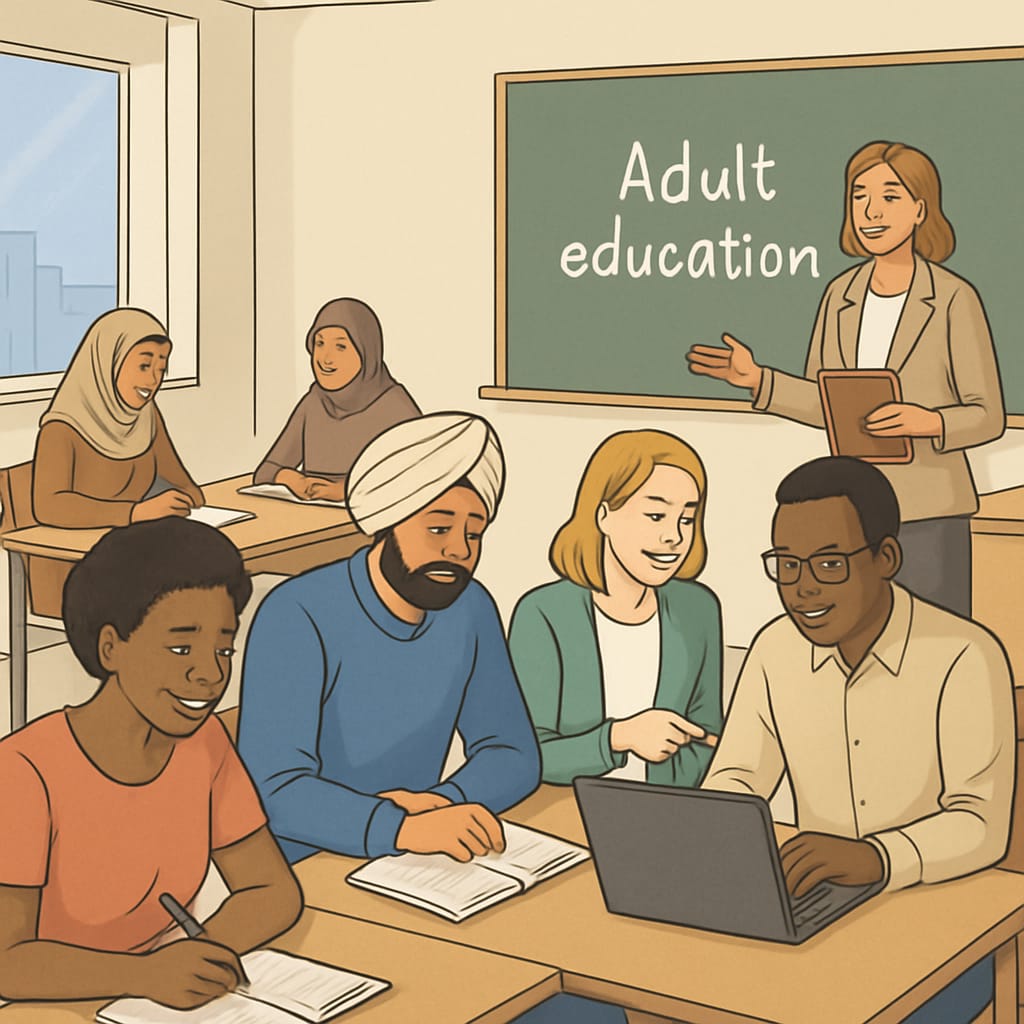Adult education, cultural adaptation, and foundational knowledge are critical for international students seeking to thrive in Western academic settings. Many adult learners face unique challenges, such as adjusting to a new cultural environment while bridging gaps in basic academic skills. This article explores practical strategies for finding effective foundational learning resources in New York City, helping adult students overcome these hurdles and achieve success.
Understanding the Challenges Faced by International Adult Learners
International adult students often encounter a dual challenge: adapting to a new cultural framework and addressing gaps in foundational academic knowledge. For example, subjects like mathematics, science, and language arts may be taught differently in their home countries compared to Western education systems. As a result, learners may struggle to meet academic standards or feel overwhelmed by the need to balance cultural integration with academic progress.
Additionally, adult learners often have to manage responsibilities such as work, family, or immigration requirements, which can limit their availability for traditional classroom-based courses. This underscores the importance of flexible and tailored educational solutions.

Effective Strategies for Bridging Knowledge Gaps
To address these challenges, international students can explore a variety of resources and strategies tailored to adult education. Below are some recommended approaches:
- Community Colleges: Institutions like New York City’s Borough of Manhattan Community College offer affordable and accessible courses designed for adult learners. These programs often include remedial classes to strengthen foundational skills.
- Online Learning Platforms: Websites such as Khan Academy and Coursera provide free or low-cost courses in essential subjects. These platforms allow learners to study at their own pace while accessing high-quality materials.
- Cultural Immersion Programs: Participating in language exchange groups or cultural workshops can help students adapt to the local environment while improving communication skills.
- Learning Communities: Joining study groups or local adult education networks can provide peer support and motivation, fostering a sense of belonging within the learning process.

Adapting to Cultural Norms in the Learning Environment
Cultural adaptation plays a significant role in the success of adult education. International students often need to familiarize themselves with Western teaching styles, which emphasize critical thinking, open discussion, and self-directed learning. Strategies for effective cultural adaptation include:
- Engaging with Local Communities: Volunteering or attending community events can help students build connections and understand cultural nuances.
- Practicing Active Communication: Developing confidence in asking questions and participating in discussions is key to navigating the expectations of Western classrooms.
- Seeking Mentorship: Finding a mentor who understands both the academic and cultural landscape can offer invaluable guidance and support.
With consistent effort and the right resources, international adult students can seamlessly integrate into new educational and cultural environments.
Conclusion: Empowering International Adult Learners
By leveraging the diverse educational and cultural resources available in New York City, adult learners can bridge foundational knowledge gaps while adapting to their new environment. Whether through community colleges, online platforms, or cultural immersion programs, the path to success is accessible and achievable. Adult education, cultural adaptation, and foundational knowledge are not barriers—they are opportunities for growth and learning. With a proactive approach and the right tools, international students can thrive academically and culturally.
Readability guidance: This article uses concise paragraphs, practical lists, and transitions like “for example,” “in addition,” and “as a result” to ensure clarity and engagement. Passive voice and extra-long sentences are minimized to maintain readability.


